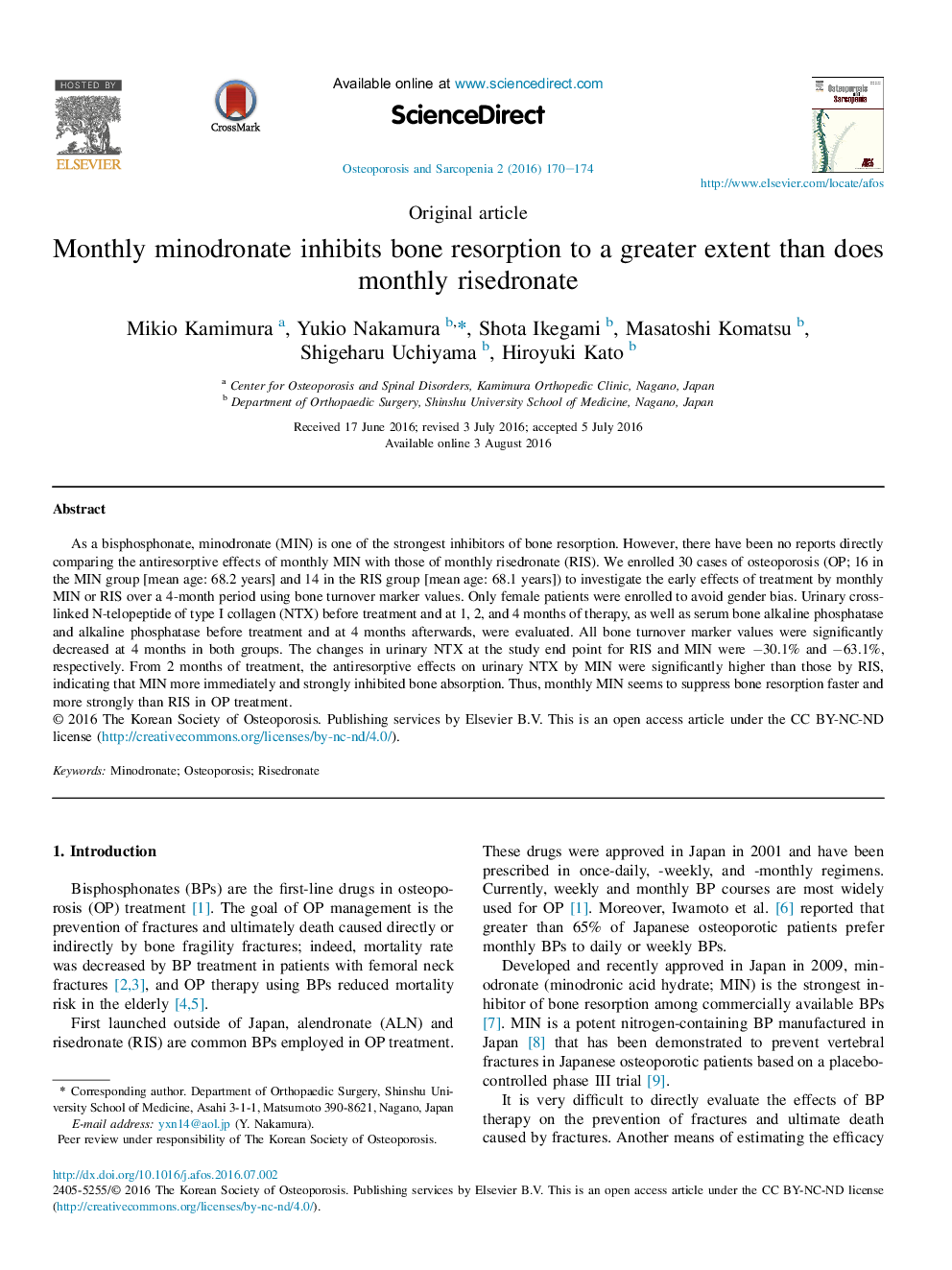| Article ID | Journal | Published Year | Pages | File Type |
|---|---|---|---|---|
| 3277887 | Osteoporosis and Sarcopenia | 2016 | 5 Pages |
As a bisphosphonate, minodronate (MIN) is one of the strongest inhibitors of bone resorption. However, there have been no reports directly comparing the antiresorptive effects of monthly MIN with those of monthly risedronate (RIS). We enrolled 30 cases of osteoporosis (OP; 16 in the MIN group [mean age: 68.2 years] and 14 in the RIS group [mean age: 68.1 years]) to investigate the early effects of treatment by monthly MIN or RIS over a 4-month period using bone turnover marker values. Only female patients were enrolled to avoid gender bias. Urinary cross-linked N-telopeptide of type I collagen (NTX) before treatment and at 1, 2, and 4 months of therapy, as well as serum bone alkaline phosphatase and alkaline phosphatase before treatment and at 4 months afterwards, were evaluated. All bone turnover marker values were significantly decreased at 4 months in both groups. The changes in urinary NTX at the study end point for RIS and MIN were −30.1% and −63.1%, respectively. From 2 months of treatment, the antiresorptive effects on urinary NTX by MIN were significantly higher than those by RIS, indicating that MIN more immediately and strongly inhibited bone absorption. Thus, monthly MIN seems to suppress bone resorption faster and more strongly than RIS in OP treatment.
